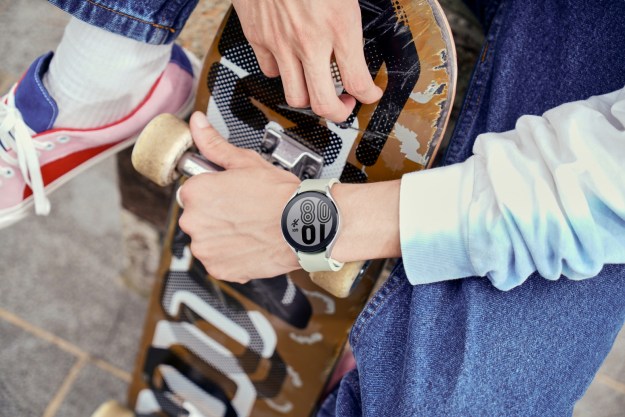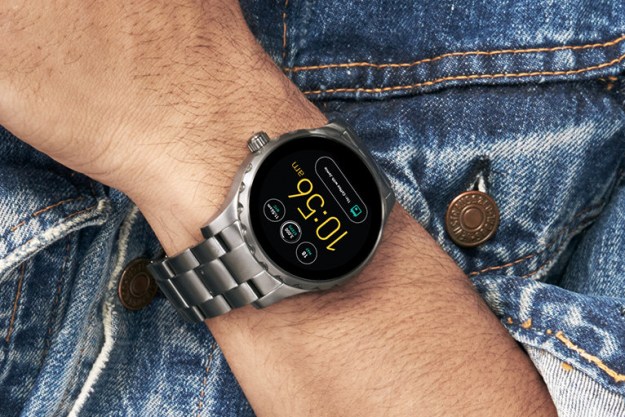We can all use a little help staying in shape. Crowbarring exercise into busy lives can be tough and it’s often the first thing that gets jettisoned when something crops up. The best fitness trackers provide us with friendly reminders to get up and out; they track steps, measure our heart rate, estimate calories burned, and give us a general read on how active we are.
Little wonder, then, that millions of people wear some kind of fitness tracking device every day and that the worldwide market is worth billions. But just how accurate are fitness trackers?
“The short answer is: It depends,” Assistant Professor of Kinesiology and Epidemiology at the University of Wisconsin-Madison, Lisa Cadmus-Bertram told Digital Trends. “The long answer is that they are accurate enough to be useful for most people for most purposes. But it also varies by what it is you’re trying to measure.”
Almost all fitness trackers count your steps and distance traveled, and it’s increasingly common to measure heart rate. They generally also provide some estimate of your energy expenditure or calories burned, and they may estimate your sleep quality. You’ll find most of the same features that you can expect to find in dedicated fitness trackers in all of the best smartwatches too.
Counting steps
The shallow end of fitness tracking is a simple step count. The goal of 10,000 steps a day may be arbitrary, but there’s no disputing that more activity is better for you, and it provides a nice, neat number for people to shoot for. The question is: Can you trust your fitness tracker to accurately measure your progress?

“Measurement of steps tends to be pretty accurate,” says Cadmus-Betram. “With two main caveats – people who move very slowly or have unusual gaits typically find that their steps are undercounted, sometimes by quite a lot and that’s true even with research grade pedometers.”
For most people the counts are pretty good but check your step count on two different fitness trackers or compare it to your smartphone’s estimate and you’ll see differences. Step counting may have been more accurate with early clip-on devices that were designed to be worn on the hip.
“The hip is really the best place for measuring steps and also most types of physical activity,” says Cadmus-Betram. “A smartphone worn in a pants pocket should be able to calculate steps very accurately.”
“At any moment your tracker could be 20 beats too high or low.”
Wrist worn devices are inevitably going to record a lot of extraneous movement that has little to do with physical activity. Even if you wear your fitness tracker on your non-dominant wrist – which is the recommendation – it’s going to register all of your hand movements.
Your smartphone may be more accurate at counting steps, but it’s not a great alternative in the real world. Consider that your phone isn’t always in your pants pocket; no one wants a phone in their pocket when they’re working out; and a lot of women’s clothing lacks pockets anyway.
Manufacturers moved away from clip-on trackers because people would lose the devices, forget to attach them, or accidentally send them through the laundry affixed to pieces of sweaty workout wear. But the move to wrist worn trackers also opened the door for heart rate sensors.

“Having those multiple data streams allows it to combine the heart rate data with the movement data to try to come up with a better guess,” explains Cadmus-Bertram. “Which helps a lot – the phone doesn’t have those additional data streams.”
Measuring heart rate
Picking up a fitness tracker or smartwatch with a heart rate sensor is much easier and cheaper today than it used to be, but how accurate are these sensors?
“The devices that measure heart rate tend to be pretty good at measuring heart rate at rest but have a lot more variability when measuring heart rate during exercise,” says Cadmus-Bertram.
“The problem is it really can’t know certain things about your body.”
Fitness trackers can be quite far out of step with your actual heart rate when you’re working out. When you get sweaty, they often fail to record your heart rate completely. There have been several different studies that show fitness trackers and smartwatches are fairly good at measuring heart rate at rest or in recovery, but get less accurate as the intensity of exercise increases.
“At any moment your tracker could be 20 beats too high or low,” Cadmus-Bertram suggests. “But while it’s not necessarily going to be precise for any of those specific moments, because it’s equally falling above and below the truth – it’s not consistently overestimating or under estimating – if you look at your average rate over a longer period it’s going to be pretty accurate.”
The question of how accurate is accurate enough depends on what you’re using it for and what you expect. The ECG functionality in the latest Apple Watch isn’t as accurate as the 12-lead ECG they might do in a clinic or hospital, but it can still be useful in potentially alerting people to problems and encouraging them to investigate further.

If you’re running a marathon or training seriously for an event, then the heart rate sensor variability in a typical fitness tracker may be too high to make it really useful. In that case a chest strap is going to be much more accurate than a wrist worn tracker. But for most people looking to get a general sense of their heart rate, fitness trackers are probably accurate enough.
Something that fitness trackers really do struggle with, though, is measuring energy expenditure.
Burning calories
“Calories burned is a really hard thing to estimate,” explains Cadmus-Bertram.
Most activity trackers are measuring the motion of your body and combining that with your height, your weight, your gender, and your age. Sometimes they might have asked you some lifestyle questions during setup and that data can be thrown into the mix.
“Even the cheapest trackers have all of the most important features.”
“The problem is it really can’t know certain things about your body,” says Cadmus-Bertram. “For example, it’s guessing about your relative proportions of muscle and fat and those things have a lot to do with your resting energy expenditure.”
A recent meta-analysis covering 60 previously published studies showed that fitness trackers are not very accurate at measuring energy expenditure, especially for less vigorous activities like walking or housework. But once again, that doesn’t mean that they’re useless. If you’re aiming to lose weight and want to count calories burned as part of a diet and exercise effort, then fitness trackers can help you do it.
If you aim for a 250-calorie deficit per day, for example, which Cadmus-Bertram says should equate to a half a pound of weight loss a week, then you could work towards calibrating your fitness tracker. Wear it for a month and count all of your calories in by logging the food you eat accurately. It’s a lot of work to accurately count your calories, but cross referencing this with your weight and tracked activity allows you to see how far out your fitness tracker is and adjust accordingly, so it can still be a useful tool.

Despite all of the potential inaccuracies, there is also plenty of evidence that fitness trackers can encourage you to be more active and help you get fitter, provided that you engage with your device and set goals that you actually work towards.
“It ends up functioning like a wristwatch if you don’t actually engage with it,” says Cadmus-Betram.
You have to work to get into good habits, but you also need the right device.
How to choose a fitness tracker
First of all, it’s important to consider compatibility with your phone. The Apple Watch is going to be a great choice if you have an iPhone, but not so much if you don’t. There are also a lot of different features available and you need to decide if you want something just to track your activity or to serve as a smartwatch, too.
“Even the cheapest trackers have all of the most important features,” says Cadmus-Bertram. “The real cut-off is: Does it have a heart rate sensor or not?”
The heart rate sensor is important; it doesn’t just add heartbeat tracking. The meta-analysis makes clear that devices that employ accelerometry alone are also much less accurate at estimating energy expenditure than trackers with heart rate sensors.
Budget is obviously going to figure in your decision, too, but you don’t necessarily have to spend a lot.
“The lowest cost model that comes with a heart rate sensor is what I would recommend,” says Cadmus-Bertram. “You could spend twice as much but you’re not really going to get additional features that matter.”
Editors' Recommendations
- How does Garmin measure stress, and is it really accurate?
- The hidden psychological drawback of fitness trackers
- The best cheap fitness trackers of 2019


